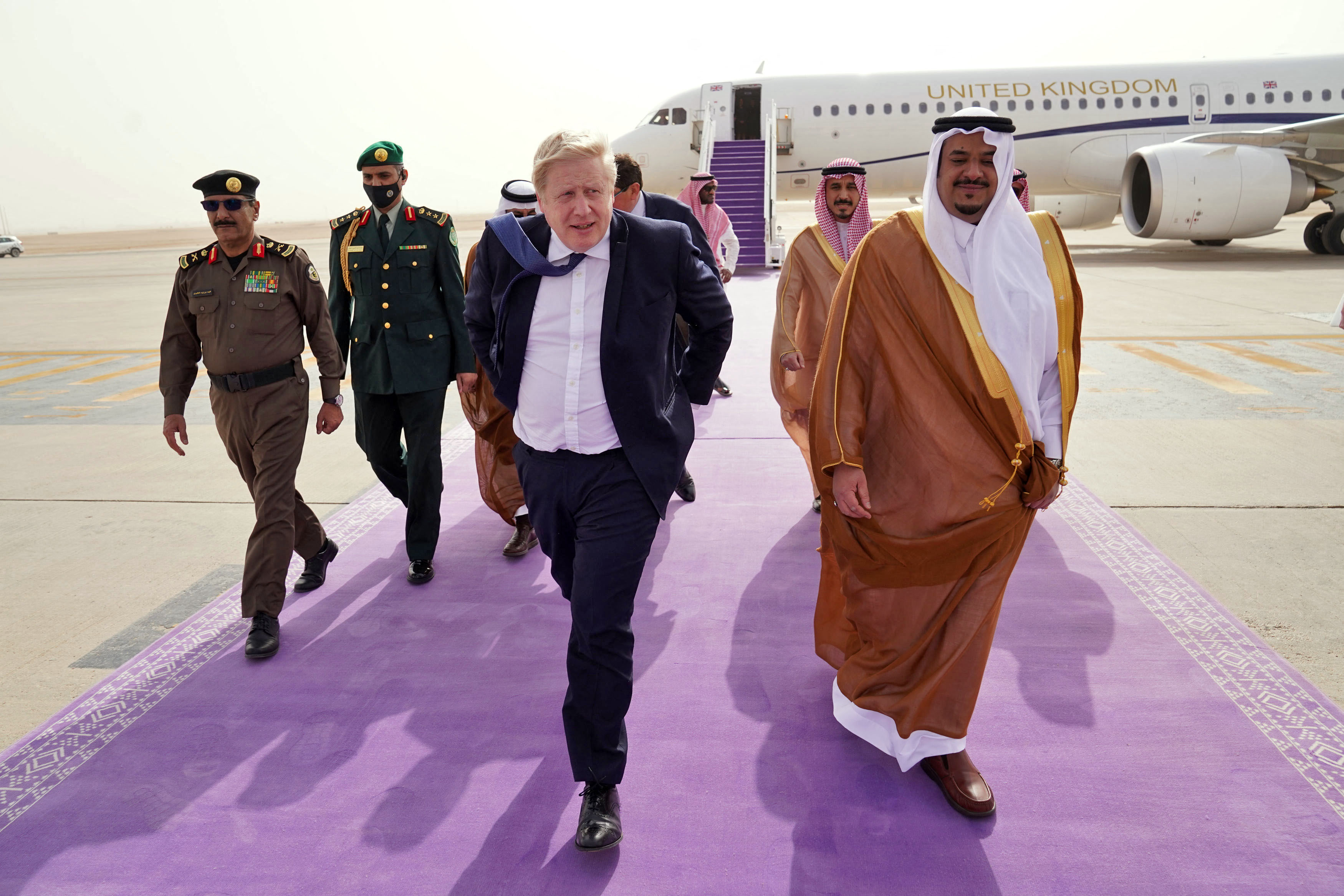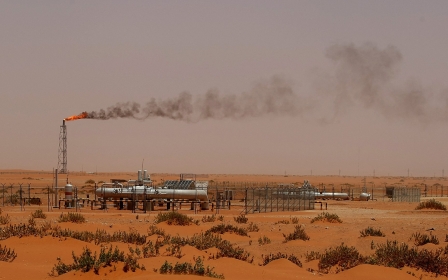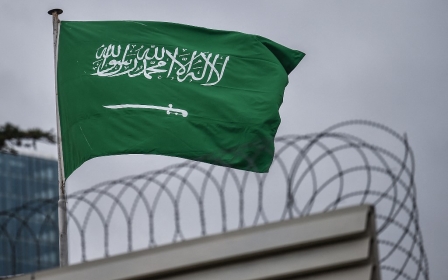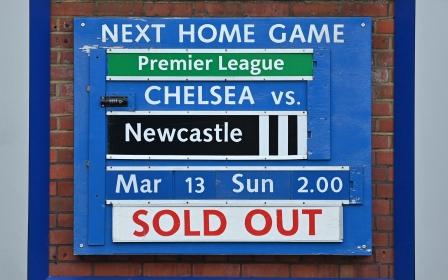Saudi Arabia executes three on day of Boris Johnson's visit amid outrage from rights groups
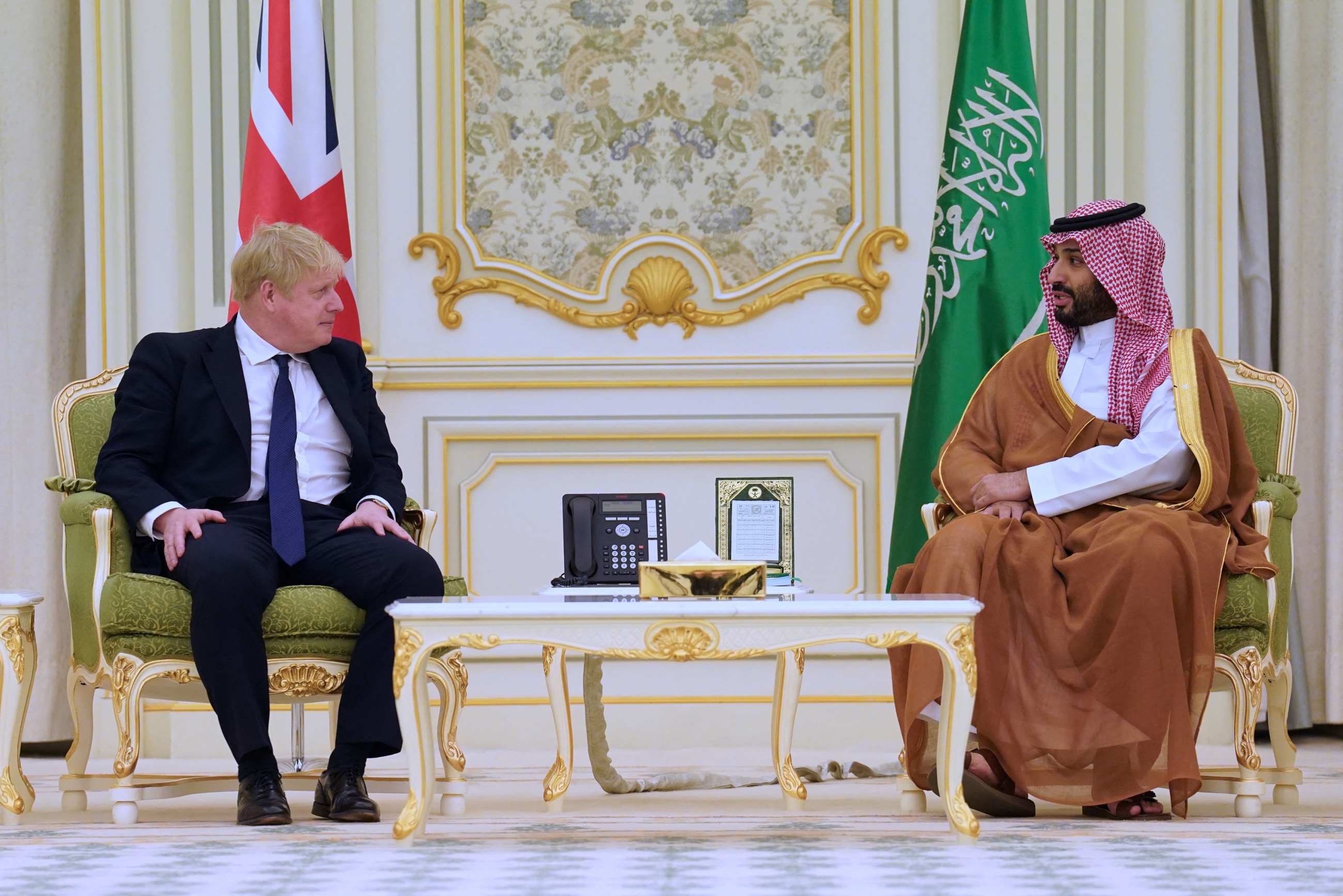
Activists have condemned a visit by British Prime Minister Boris Johnson to Saudi Arabia following a mass execution in the kingdom over the weekend and the execution of a further three prisoners on Wednesday, during the prime minister's trip.
Johnson is reportedly visiting the kingdom after travelling to the neighbouring UAE, with the intention of urging the Saudis to begin pumping more oil in order to calm markets shaken by the Russian invasion of Ukraine.
Saudi Arabia said Saturday it had executed a record 81 people in one day for terrorism-related offences, exceeding the total number killed in the whole of 2021.
'The UK should shift from shortsighted policies and instead have human rights at the core of its foreign relations'
- Lina al-Hathloul, ALQST
The British premier's decision to visit the kingdom so soon after the mass killing has angered campaigners, particularly as Johnson has cited a desire to wean the UK off Russian gas as a reason for the visit.
Three more people were executed on Wednesday morning during Johnson's visit, according to the Reprieve campaign group.
New MEE newsletter: Jerusalem Dispatch
Sign up to get the latest insights and analysis on Israel-Palestine, alongside Turkey Unpacked and other MEE newsletters
Lina al-Hathloul, head of monitoring and communications at the ALQST rights group, told Middle East Eye that going from "dependency on one dictator to another" was a poor choice.
“The PM has pledged to raise human rights issues in Saudi Arabia during energy talks today," she said.
"Such promises will only be credible if the most urgent issues are raised, including calling for the unconditional release of prisoners of conscience, an end to the war in Yemen, and a moratorium on the use of the death penalty, not least as Saudi Arabia recently executed 81 people in a single day."
Hathloul, whose sister Loujain is a prominent women's rights activist who was imprisoned for years and subjected to abuse in a Saudi jail, pointed out that Russia’s aggressive policies, leading to war in Ukraine, came about as a result of "the world’s silence over decades".
"The UK should shift from shortsighted policies and instead have human rights at the core of its foreign relations. The alternative risks empowering repressive regimes, leading to perpetual crises," she said.
The war in Yemen, which Saudi Arabia joined in 2015 as the head of a coalition targeting the Houthi rebels, has been branded the world's worst humanitarian disaster by the UN.
Hundreds of thousands have died, including at least 10,200 children, according to Unicef.
Before leaving for the Saudi capital Riyadh, Johnson promised to raise human rights issues with Crown Prince Mohammed bin Salman, the country's de facto leader - but he also stressed Britain's "very important relationship" with the Gulf states.
In a statement, Reprieve said the killings carried out Wednesday emphasised how little rulers like MBS were concerned by their public perception.
“Carrying out these executions while the leader of a western power is on Saudi soil was a provocative act designed to flaunt the crown prince's power and impunity to the world," said Reprieve director Maya Foa.
“It is not acceptable to cite Russia’s war crimes to try to justify trading blood for oil elsewhere. It shows the world we will apply double standards for our convenience and embolden countries like Saudi Arabia into further atrocities, just as Putin was emboldened by our willingness to take his cronies' cash for decades."
Condemnation
On Monday, the UN human rights chief condemned the kingdom's killings and urged the kingdom to stop using the death penalty.
Michelle Bachelet said war crimes may have been committed if people were beheaded, following court cases that did not offer proper fair trial guarantees.
All had been "found guilty of committing multiple heinous crimes", the official Saudi Press Agency reported, saying they included convicts linked to the Islamic State group, al-Qaeda, Yemen's Houthi rebel forces, or "other terrorist organisations".
"I condemn Saudi Arabia's mass execution on Saturday of 81 people on terrorism-related charges," Bachelet said in a statement.
Saudi Arabia's human rights records have been under increased scrutiny from rights groups and western allies since the murder of Middle East Eye and Washington Post columnist Jamal Khashoggi in 2018.
The kingdom has one of the highest execution rates in the world, with 67 executions reported in 2021 and 27 in 2020. In 2019, 37 detainees, most of them from the country's Shia minority, were executed for alleged "terrorism" in a single day.
The last time Riyadh conducted a mass execution of this scale was in 1980, after 63 militants seized the Grand Mosque in Mecca in 1979.
Middle East Eye delivers independent and unrivalled coverage and analysis of the Middle East, North Africa and beyond. To learn more about republishing this content and the associated fees, please fill out this form. More about MEE can be found here.


